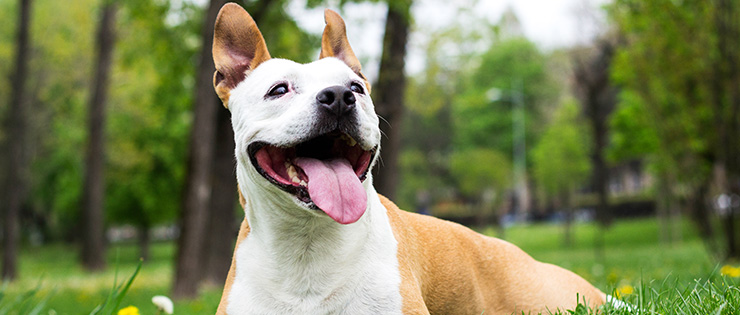
Given the name coprophagia, poo eating is something that has perplexed us for a long time, with many dog owners not only completely disgusted by their dog’s indiscriminate ingestion but also concerned that there is something very wrong with their dog.
When I say that this behaviour is fairly common and normal, behaviours usually only become an issue when they start impacting on the one doing it, and those around them. So, for dogs, eating faeces is normal, until its frequency starts to raise concerns for their health and welfare, as well as others looking in.
To put coprophagia in context, it's important to note that mammals, like humans and dogs, are born without the bacteria needed to digest plants. With dogs and the majority of humans being omnivorous (plant and meat eaters), the capacity to break down plant material is essential to survival. Plants are protected by a cellular wall called cellulose, and there are only certain types of bacteria that can infiltrate these with an enzyme called cellulase. So, it is a natural survival instinct to ingest this type of bacteria where possible. For dogs, eating other animals’ poo, or even their own, can be an instinct to build up their gut bacteria to get the nutrients from their food*.
The latest research in canine coprophagia suggests that dogs may eat faeces for two reasons
- an innate behaviour to maintain a clean den area for their family and/or
- they are just indiscriminate and greedy eaters
If you have a dog who will eat just about anything, then it may be no surprise when you see them picking up the local possum poo on their walk down the street. The fact is, most dogs do it.
If it concerns you, there are a few strategies to manage your dog’s palate
- Clean up all excrement in your yard regularly. This may mean you need to collect it more than once a day.
- Distract your dog when they begin sniffing in the area. Use a toy, or play a game with them to move them away and refocus them.
- Don’t bother with pineapple in their poo. This generally does not deter them. Enzymes in the pineapple may make them more likely to want to eat it.
- Look into your dog’s overall health. Check them at your trusted vet clinic and ensure they are in tip-top shape.
- Keep your dog busy as often as you can. Some dogs will develop pathological behaviours simply because it's self-fulfilling. Use treat dispensers for their dinner and snacks, scatter food all over your yard, teach them to search for their toys in the house, or teach them a new trick. Make engaging with your dog a positive experience for both of you.
Remember, dogs don't behave out of spite, they behave out of necessity. If your dog displays concerning behaviours in any respect, ask yourself if they are happy. Are their needs being met? Are they healthy? Do they have a purpose? The more questions we ask about our dogs, from our dog’s point of view, the more we may realise that the icky behaviours they offer are actually a call out for us to take notice. Start to listen to your dog. They have a lot to tell you.
This doesn’t necessarily mean that there is an issue with your dog’s diet, so changing their food may not be the answer to stopping the behaviour.